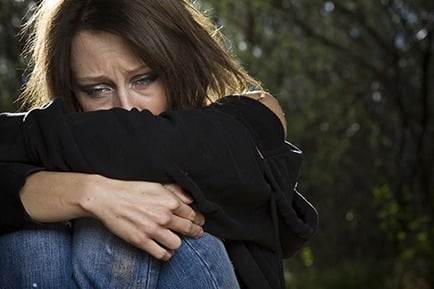
Abusive Relationship Warning Signs
At Three Seas, we see the aftermath of abusive relationships every day. There are a range of abusive relationship warning signs that you can be on the lookout for. People who have been abused frequently struggle with self-esteem, flashbacks, anxiety, depression, and an ongoing pattern of unhealthy relationships. If you are currently in an abusive relationship, don’t believe the abuser. No one deserves abuse, and counselling is unlikely to make the abuse stop. The best thing you can do for yourself and your family is getting out as soon as possible. We can help you craft a plan to get out, or if you’re unsure if your relationship is abusive, we’re happy to help you determine whether this relationship is healthy for you.
Five Abusive Relationship Warning Signs You Need to Know
Abusive relationships, though, have the power to grip even the strongest minds. It’s easy to forget that abuse victims may legitimately love their abusers, so leaving is and can be intensely painful. The best way to avoid this pain is to prevent abusive relationships in the first place. Here are five red flags to watch for.
Inability to Take Responsibility
People with abusive personalities are unable to take responsibility for their own behaviour. Consequently, they blame others for their own faults, and never see their own role in the conflict. This is what enables them to emotionally and physically abuse people they claim to love. If your new partner blames everyone else for their problems, says all of their previous lovers were “crazy,” and can never admit to a personal failing, it’s a glaring red flag.
Extreme Emotional Swings
Abusive people aren’t abusive all the time. Indeed, that’s what allows them to get away with their behaviour. They seem charming and happy, so their victims wonder if the abuse is really that bad. Thus you may see extreme mood swings. One minute the person is fine, and the next they’re screaming, crying, or even breaking things. Extreme emotions, and mood swings that appear to happen for no reason are a bad sign.
Reliance on Gender Stereotypes
People are people, not stereotypes. But abusers see people as little more than types. If your new partner insists on telling you all women are one way, and all men are another, it’s a sure sign that they see people as archetypes—not as real, living human beings with feelings and needs. You should be especially concerned if the stereotypes are negative. For example, someone who asserts that all women are liars might use this belief as an excuse to abuse women.
Excessive Intensity
If the other person is excessively emotional early in the relationship, particularly if they seem too attached, this can be a bad sign. Abusers tend to shower their victim with love early, creating a dependency that eventually enables abuse. While feeling in love is not always a sign of a problem, if proclamations of love, a desire to move in together or become exclusive, and other signals of closeness come very early and are accompanied by other signs of abuse, you may be in danger.
Exerting Control Early
Abuse thrives in a climate of isolation since isolation allows abusers to more fully control their victims. Much of this control is subtle—turning you against your best friend by pointing out her faults, spending all your time travelling so that you become more isolated from your family, etc. It’s normal to want to spend lots of time together early in a relationship, but if your relationship has suddenly removed all other relationships, it’s a bad sign. And if your new partner wants access to your finances, to take over your bank account, or to be immediately added to your mortgage, you may be in imminent danger.
[wpdevart_like_box profile_id=”thethreeseaspsychology” stream=”hide” connections=”hide” width=”300″ height=”550″ header=”small” cover_photo=”show” locale=”en_US”]
